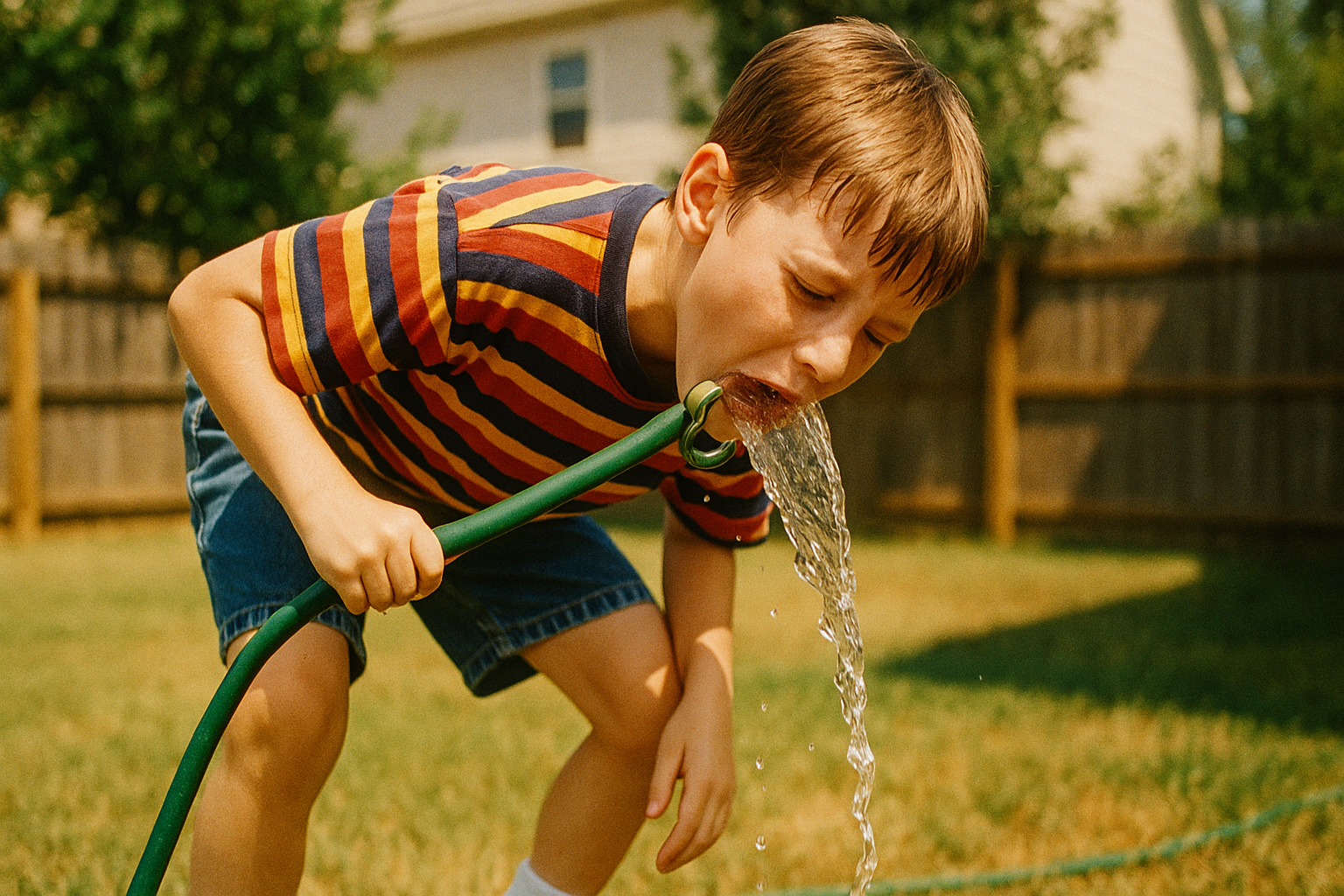Parenting shifts with every generation. What once seemed like the gold standard in family life can feel unthinkable to many parents raising kids today.
My own parents (and maybe yours too) had ways of handling children that were considered totally normal back then—but would definitely raise eyebrows now.
This isn’t about judging them; they did what they thought was best with the tools they had. But looking back, it’s pretty wild to see how much has changed in just a few decades.
Let’s dive into these practices that used to be par for the course—and why most of us wouldn’t dream of doing them now.
1) Letting babies cry it out without comfort
Back in the day, many parents were told not to “spoil” babies with too much attention. The advice was: put them down, let them cry, and eventually they’ll learn to self-soothe.
Some pediatricians even wrote this into popular parenting books.
Now we know better. Research has shown that babies cry for connection, not manipulation.
As pediatrician Dr. William Sears has noted, “A baby who cries and is picked up learns to trust. A baby who cries and is ignored learns to distrust.”
That idea alone flips the old “don’t pick them up” mantra on its head.
I remember when my son Milo was in that newborn stage and would only settle if I rocked him. There’s no way I could have just left him alone sobbing in the dark.
For most modern parents, the idea feels harsh and unnatural.
Related Stories from The Artful Parent
2) Spanking as a go-to discipline
Many boomer kids grew up with spanking, wooden spoons, or belts as part of household discipline. It was seen as effective and normal, not abusive.
Parents often believed it was the quickest way to teach respect.
Fast forward to today, and the conversation around discipline looks completely different.
Studies have linked corporal punishment to increased aggression and anxiety in children rather than long-term respect. The American Academy of Pediatrics now firmly discourages it.
At our house, we lean on natural consequences—like cleaning up a mess they made or losing a privilege—rather than fear-based methods.
The thought of using physical punishment now? It makes most parents wince.
- 8 powerful traits of people who rise every time life knocks them down - Global English Editing
- Psychology says people who never feel lonely despite living alone usually have these 7 inner strengths that take decades to build - Global English Editing
- Being a conformist keeps you accepted — but not connected to your real self - Global English Editing
3) No car seats after toddlerhood
Here’s one that blows my mind: many boomer kids rode in cars without any restraints.
Some weren’t even buckled in at all. Babies sometimes sat on laps in the front seat, and older kids piled into the back like sardines.
Today, child safety seats are non-negotiable. Laws require them, and many parents keep kids in booster seats until they’re 8 or even older, depending on their size.
The difference between then and now is staggering.
I once saw an old photo of my husband as a toddler standing between his parents in the front seat—no straps, no seat. My first thought? “That would get you arrested today.”
4) Drinking from the garden hose

Summer memories for boomer kids often include drinking water straight from the garden hose. No filtered bottles, no stainless steel cups, no worries about microplastics or lead.
These days, most parents wouldn’t dream of it. We’re hyper-aware of chemicals in plastics, contaminants in tap water, and the need for filtration.
I’m not saying kids today are deprived—just that safety standards have shifted.
When Ellie helps me in the garden, she loves running to fill her little cup from our kitchen filter instead. Times have changed, and so have our comfort levels.
5) Smoking around kids
In the boomer parenting era, smoking was everywhere.
Cars, kitchens, airplanes, even doctors’ offices—it was all fair game. Parents thought nothing of lighting up while kids were in the room.
Now, the dangers of secondhand smoke are widely known. Even thirdhand smoke (residue left on clothing and furniture) is considered harmful.
Public places have bans, and many families enforce strict no-smoking policies at home and in cars.
The thought of a baby in a smoky living room today? Unimaginable. This is one area where science and advocacy really have changed the landscape for the better.
6) Kids roaming free without supervision
Remember the stories of kids being told to “be home by dark”? That was normal for boomer childhood.
Young kids walked to school alone, biked across town, and spent hours unsupervised with friends.
While many of us look back at that freedom with nostalgia, today’s parents are more cautious.
Concerns about traffic, abduction, and accidents mean most kids are closely supervised. Playdates are scheduled, and even older kids are often tracked by phone.
I try to balance this one—encouraging my kids to explore in safe settings (like our backyard or a familiar park) but not just sending them off unsupervised.
Still, it’s wild to think how far the pendulum has swung.
7) Fast food as a family staple
Boomer parents embraced the rise of fast food in the ’70s and ’80s.
Drive-thrus were a novelty, and feeding kids burgers, fries, and soda multiple times a week didn’t raise eyebrows.
Now, nutrition is front and center. Many parents prioritize whole foods, organic produce, and limiting processed meals.
While most of us still hit the drive-thru sometimes (because hello, life), it’s more of an occasional fallback than a weekly routine.
I can’t imagine sending Ellie to school every day with soda in her lunchbox—but that was totally normal once upon a time.
8) Ignoring kids’ emotions
One of the biggest shifts has been around emotional awareness.
Boomer parents often told kids to “toughen up,” “stop crying,” or “don’t be a baby.” Feelings were dismissed, not nurtured.
Today, many of us see emotional expression as essential to healthy development. We encourage kids to name their feelings and give them tools for coping.
As psychologist Dr. John Gottman wrote in Raising an Emotionally Intelligent Child, “When parents are aware of their children’s feelings and validate them, children learn to trust their emotions.”
When Milo gets frustrated building a block tower, I try to name what he’s feeling—“That’s frustrating, huh?”—and help him take a breath.
It’s a far cry from the “man up” culture many boomer kids grew up in.
Final thoughts
Looking back, it’s almost shocking how much parenting norms have changed in just a few decades.
What was once accepted practice—cry-it-out, spanking, smoking around kids—now feels completely out of line with what we know about child development, safety, and emotional health.
Our parents weren’t bad parents. They were doing the best they could with the knowledge they had. And maybe one day our kids will look back and laugh at some of our habits, too.
For now, we get to choose what fits our families, what feels respectful to our children, and what aligns with the values we want to pass down.
Parenting will keep evolving—but the heart of it stays the same: raising kids with love, care, and connection.



